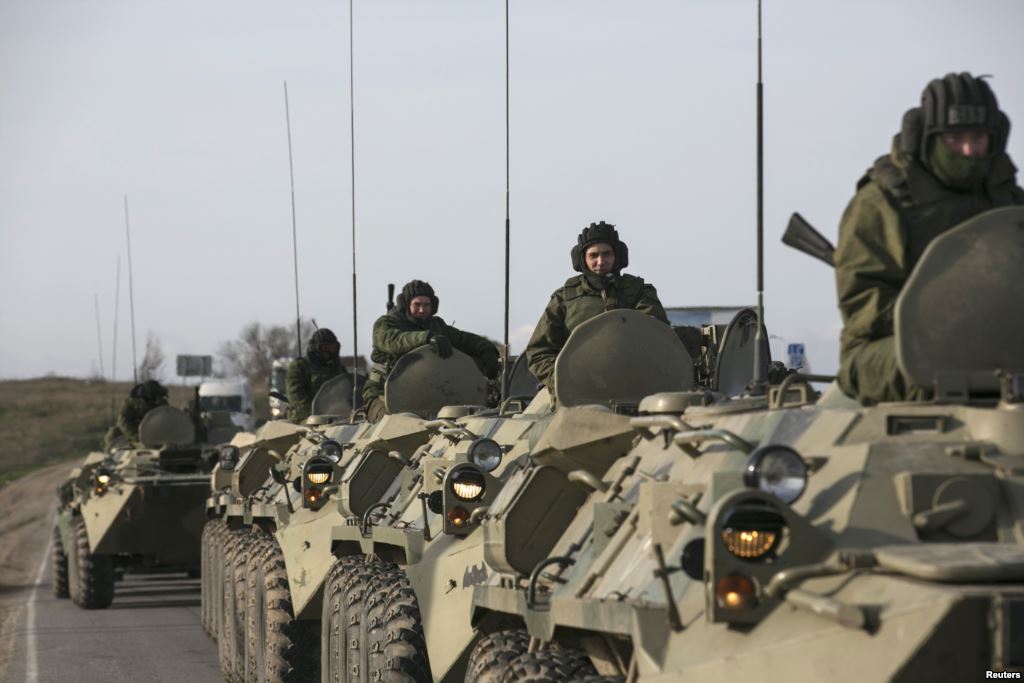The Russian troops amassed along the Ukrainian border have evolved to an exceptionally capable force, Defense Department spokesman Army Col. Steven Warren told Pentagon reporters today.
While NATO estimates the number of Russian troops inside Ukraine number between 1,000 and 2,000, a significantly larger force is massed at the Russia-Ukraine border, Warren said.
“We are continuing to say [there are] more than 10,000 Russian personnel along the border,” he said. “What I will say is that the force that we see [already] along the border is exceptionally capable,” adding that it’s probably more capable and more lethal than it was before.
Combined arms Russian force
“This is a combined arms force,” the colonel said. “It includes land power, indirect fire [and] air defense. It is a capable combined arms force that we remain very concerned about.” It is organized with ground forces, the colonel said, and there are higher concentrations of field artillery, air defense and rockets, along with enablers such as engineers, logistics and combat service support
Warren noted the buildup of the Russian forces on the border has occurred over time and is an “evolution.”
The Defense Department continues to provide assistance to Ukraine in the form of nonlethal aid, Warren said.
De-escalate the situation
“The whole idea is to de-escalate [the situation],” he added, “so we’re very sensitive to providing things that will cause an escalation. We’ve been looking at it very seriously, and the decision now is to focus on non-lethal aid.”
Warren said Air Force Gen. Philip M. Breedlove, commander of U.S. European Command, and NATO’s supreme allied commander for Europe, also has expressed his concern. “And I know General Breedlove was out earlier this morning, in fact, also talking about this and discussing the fact that several nations, individually and bilaterally, are in discussions with the Ukrainians as well as NATO as a whole,” Warren added.
NATO heads of state began an alliance summit meeting today in Wales.
NATO dialogue
Russia’s actions, Warren said, have forced an increased dialogue on the financial contributions of all of the NATO nations.
“We’re seeing that in everyone’s public discussions from all of our senior leaders that actions out of Russia … are cause for all of the NATO member states to take a close look at their contributions to defense,” he said. “This is the purpose of these summits — to work through these kinds of issues. There’s no question the Europeans are acutely aware of Russian actions in their back yard.”










